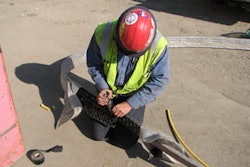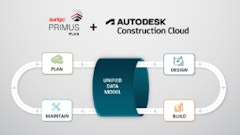As the impact of rising oil prices continues to play out with ever-increasing gas prices (some are predicting $6 a gallon by the end of summer), rising food prices, and rising anything that relies on oil to produce, process and ship goods to the consumer, we are all forced to find ways to stretch our limited financial resources. The asphalt industry and the customers it serves are no different.
Rising asphalt cement and diesel fuel costs are making it tougher by the day to bid and deliver a competitive project. Road agencies have been forced to reduce the size of projects let due to the rising costs even though the need for maintenance and improvements continues to mount.
Not to make light of the situation or insult the road agencies and contractors who must work together to deal with this reality, but it is this new reality that will force the agencies that need the roads and the contractors who will build the roads to find creative and cost-effective solutions that meet the needs of both. Both will have to work smarter to deliver the road infrastructure needs of this country.
Increasing the usage of reclaimed asphalt pavements, letting more warm mix asphalt projects (up until now warm mix has been used on only test projects), and leveraging the benefits of pavement preservation to extend the service life of roadways are all viable solutions in helping to control costs, as well as constructing and maintaining quality pavements.
Typically, road agencies have allowed 15 to 20 percent RAP content to be used on road projects. Now they're beginning to realize they can save $1 to $2 per ton if they raise the RAP content to 35 percent. Warm mix technology also provides an opportunity to cut production costs by using additives, whether chemical or foamed water, allowing a mix to be produced at a lower temperature. And many agencies are now realizing the planned preservation treatment of good roads is a more economical way to extend the serviceability of their road networks.
Consumers will be forced to do a better job of planning their trips to maximize the investment they're making in a gallon of gas. They'll combine errands or plan a more efficient way to get from point A to point B, and they'll realize they can be more efficient without giving up their freedom to drive.
Likewise, road agencies and their contractor partners will continue to seek out solutions that allow them to deal with rising material costs and still provide the quality pavements they need to deliver. It's our new reality and it requires a cooperative effort in order to find ways to work smarter.




















